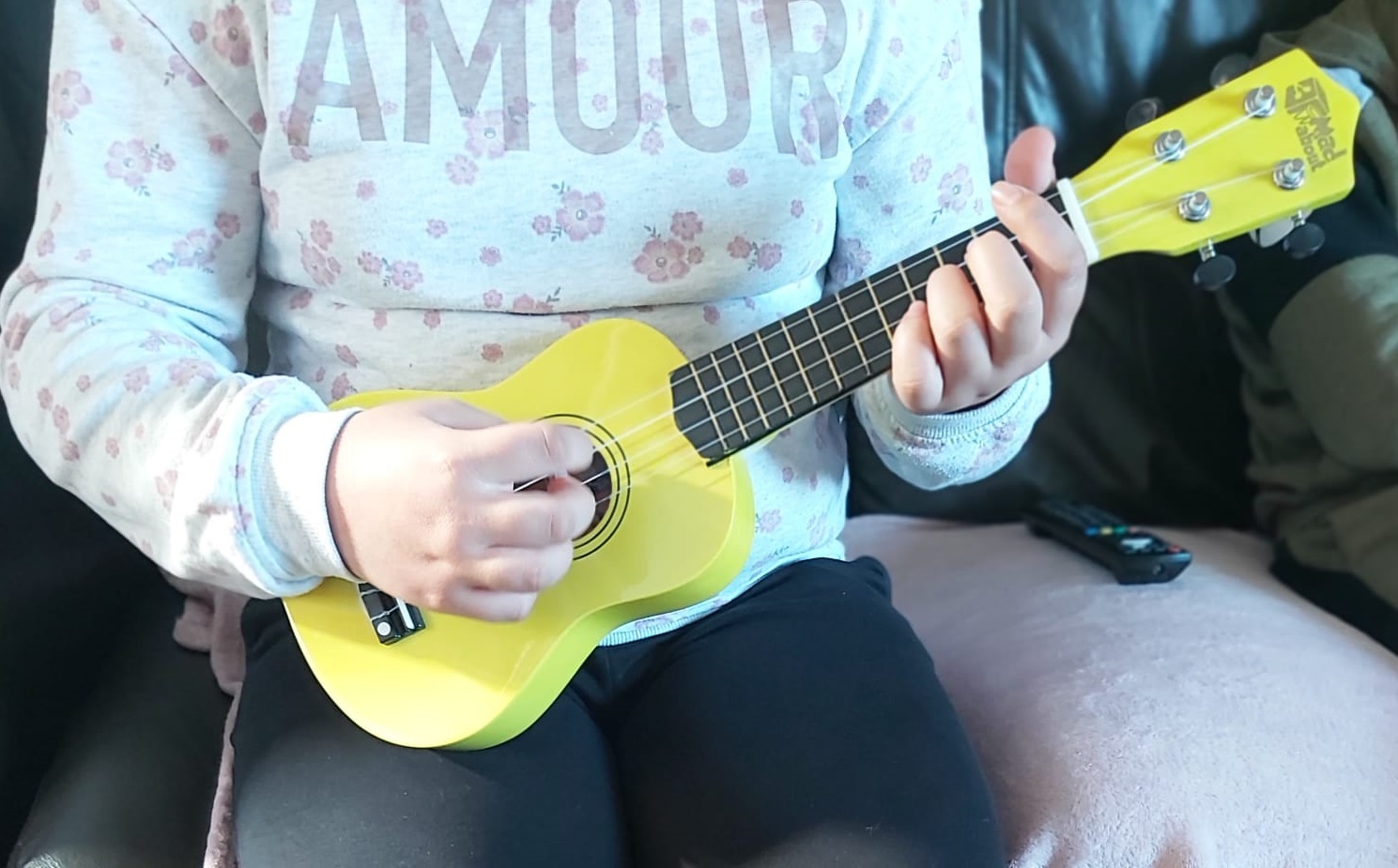In the run-up to Spirit of 2012's major Carer's Music Fund summit on 23rd June 2021, we asked the Carers' Music Fund grantees to look back on their projects as part of a new series of blogs called 'CMF Reflections'.

CMF Reflections: ‘Women’s Work’ – Oh Yeah Music Centre

This time, the Oh Yeah Music Centre in Belfast reflect on their ‘Women’s Work project, which runs music sessions for women and girls who have caring responsibilities for children and loved ones. The project engages women caring for people with dementia and disabled people, and works in schools with recent Syrian migrants, delivering a variety of music sessions.
Our group consisted of Syrian refugee women who are also mothers and/or carers. We had coordinated weekly meetings in the local integrated primary school (their children attended here so it was a trusted location) with a translator and childcare from a local community Children’s Care group. All the communication was done through a translator – Hiba, a human rights lawyer from Sudan who arrived in Ireland as an asylum seeker and has since dedicated herself to supporting other Arabic-speaking families and women arriving here.
When the world locked down in March 2020, we lost the location of our weekly meetings and the ladies indicated that they were no longer comfortable meeting while the virus was at a dangerous stage. We took the decision together to hold off on further meetings for the time being. It became apparent that they may now, in fact, be more isolated than ever before, especially with 5 of the ladies living rurally.
Ramadan during lockdown provided a fresh set of challenges for these women and their families that we did not previously consider, such as those with young children have no other support for childcare.
We decided to build flat-pack ukuleles. This had been part of our previous plan but we pivoted to make this the central activity. Once we told them this, the ladies wanted to continue and all signed up straight away. They would first build their ukuleles, decorate them, then learn to play them.
What quickly became apparent was that these ladies needed a lot of time to talk before we started each ‘music activity’. These discussions began to have a positive impact immediately. The women discussed Ramadan, their children’s education, lockdown, the virus, cooking, cleaning, their fears as well as the benefits that have accompanied spending a lot more time at home. They had more time for themselves to be creative and artistic, so this project was great for them to work on as something for themselves during the daylight hours when they were fasting.

One participant – Fatma – said that this was the easiest Ramadan she had ever done because she had a lot of time and did not have to go to work. “After Covid started I needed it (the project) more and I was worried it would stop,” she said. “The sessions were amazing and we went back home with lots of fun and happiness. My daughter also likes it very much.”
Another participant said: “Even during the online sessions and after I felt happy because I have some nice time for myself to relax without the kids and the housework stress. In addition to that talking to the women in the group and laughing was very beneficial to me.”
As an organisation, we have learned the importance of being participant-led at all stages of a project. Things can change so quickly and we need to know how best to be prepared for this this. We have learned that there is a lack of support for refugees in our country and that their needs stretch far and beyond having a place to sleep at night.
A lesson I have been reminded of, personally and professionally, is that there is an innate reward system within our bodies and minds’ that is activated when we see, hear or play live music. I have learned that there is no way to replicate this authentically.
Online resources and programmes have been our saviour in many ways. Our weekly sessions have given us the tools, skills and resources to play the ukulele. They have taught us the words we need to sing in Arabic and English while teaching us more of both languages. But, like the English lessons have been applied by our carers in real life, we need that real life application of music – to feel the energy from your friend as she watches you play the instrument you built with your own hands during the biggest challenge of a lifetime.
To hear our voices sing in unison for the first time, those vibrations cannot be felt through a screen. It is our challenge as providers to balance the safety and responsibility of our organisations with the needs of our carers involved with live music projects.
Click to find out more about the other Carers’ Music Fund projects.
